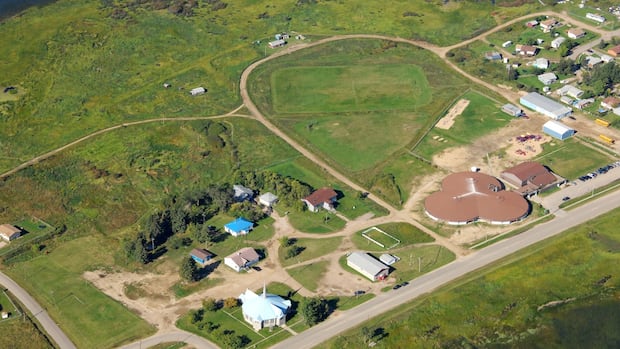SaskatchewanThe school and its legacy have been the subject of legal action for years. Survivors have previously launched lawsuits against both the federal and provincial governments, arguing they should be recognized and compensated for the abuse they endured.School has been the subject of legal action for yearsAishah Ashraf · CBC News · Posted: Sep 29, 2025 7:00 AM EDT | Last Updated: 4 hours agoThe residential school closed in the mid 1970s. The site is now surrounded by the village’s elementary school and high school. (Submitted by Northern Village of Ile-a-la-Crosse)Survivors of the Île-à-la-Crosse Residential School and the Saskatchewan government are expected to make what they are calling a “major” announcement Monday morning.Premier Scott Moe, Métis Nation-Saskatchewan (MN-S) leaders and provincial officials are among the planned attendees.The school and its legacy have been the subject of legal action for years. Survivors have previously launched lawsuits against both the federal and provincial governments, arguing they should be recognized and compensated for the abuse they endured.On March 3, 2025, Ottawa announced a $27-million agreement in principle with survivors. That deal included a federal apology and a $10-million legacy fund to support cultural, language and healing initiatives.Survivors said Canada had accepted half the responsibility and called on Saskatchewan to take similar steps.About 460 kilometres north of Saskatoon, the Île-à-la-Crosse Boarding School was one of the earliest and longest-running institutions of its kind in Canada. Over that time, an estimated 1,500 children, most of them Métis from northern Saskatchewan, were forced to attend.Former students have described widespread physical, sexual and emotional abuse at the school. Children were discriminated against, neglected and prohibited from speaking their languages, including Cree and Michif. The Truth and Reconciliation Commission of Canada has described the school’s history as “long and complex.”Because Île-à-la-Crosse Boarding School pre-dated the federal residential school system, which began in the 1880s, it was not included in the 2006 Indian Residential Schools Settlement Agreement (IRSSA). Survivors were denied compensation given to others across the country, and disputes over whether the federal or provincial government was responsible, left them without recognition.The MN-S has previously said both levels of government funded the school at different points.Survivors argue that this shared responsibility has contributed to the decades of delay in reaching a settlement.ABOUT THE AUTHORAishah Ashraf is a reporter with CBC Saskatchewan, based in Prince Albert. You can send story ideas and tips to aishah.ashraf@cbc.ca.
Île-à-la-Crosse Residential School, Sask. government to make ‘major’ announcement Monday











